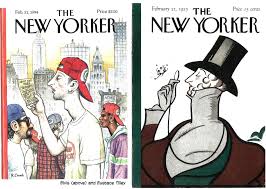I have a new old friend, born and raised here in Collins (Horserump), who surprised me a while back by suggesting that this town/city was becoming “cosmopolitan.” Until he suggested it, it’s a description I myself would not have chosen.

(Cosmopolitan: 1. including or containing people from many different countries; 2. familiar with and at ease in many different countries and cultures; 3. having an exciting and glamorous character associated with travel and a mixture of cultures.)
Regardless of the definition, my friend is not naïve. He is a worldly fellow, and knows cosmopolitan when he sees it. Last year he enjoyed a six month cruise around the world (six months!) that added five new countries to his “countries visited list.” That brought his total of “countries visited” to one hundred and ninety six.(!) He accumulated these countries by spending his career (after leaving Fort Collins) first in the Peace Corps and then the U.S. Foreign Service. He’s spent significant time in Cairo, Kiev, New York City, Mogadishu, and other “cosmopolitan” places. (He was in both London and Paris earlier this year as well as Amsterdam, Budapest and Belgrade, as part of yet another cruise.)
Still, Fort Collins as “cosmopolitan?”
First, we are clearly not cosmopolitan, as my friend quickly agreed, when it comes to ethnic diversity. Yes, it’s much more diverse (or at least somewhat more diverse) now than it was 50 years ago, when my friend was growing up here, or even ten or twenty years ago. Still, the latest figures show that 89% of the people in Fort Collins identify as “white;” 3.6% “mixed” (which probably includes our Chicano residents); 3.1% Asian; just 1.56 % Black or African American; and less than 1% Native American. (Stats from World Population Review.)
So, other than ethnic diversity, what did my friend mean by “cosmopolitan”? Maybe because of those characteristics which transcend racial identifiers. In 2006, the city was ranked as the best place in the country to live by Money magazine because of its excellent school districts, high-tech job market, low crime rates, and outdoor life. Culturally, we do have a very obvious, though still nascent “globalized” consciousness aborning here. The university brings scholars and researchers and artists from around the world, and often makes these dignitaries available to the local residents. The local arts scene is in fact populated by some world class artisans who prefer to live away from (or in addition to) New York, L.A. or London. Thus, the productions from our local symphony, dance and ballet troupes, theater companies are consistently of the highest (even cosmopolitan!) caliber. Our “global village museum” is a one of a kind experience. And our choice of restaurants is indeed cosmo, or at least, moving in that direction.
“So,” as some of my native Fort Collins’ redneck buddies might ask, “who cares? What’s the big deal if we’re cosmo or not?”
Here’s why: Because in the future our whole human culture, including its political stability and economic health as well as its technological innovation, will be, according to the brilliant young economist Parag Khanna, focused in our cities. Indeed, the focus of the overarching power of human industry may perhaps already reside in the cities.
And more specifically, he posits that the “political sovereignty” which we now experience as hierarchal with “nation-state” at the top and “state” in the middle, with the “city” at the bottom, is in the process of completely reversing. He suggests that the true power– politically, economically, culturally—emanates from the cities, rather than from state or national infrastructures. He gives evidence that this is true not only here in the U.S. but around the world.
The political insight that recognizes the sovereignty of the city as rightfully dominant over the sovereignty of the state or nation is an insight that may take another fifty or one hundred years to become contextualized in our political infrastructure. Nevertheless, it’s becoming easier and easier to recognize that the “health” of Fort Collins depends as much on its relations and interactions with the cities of Loveland, Greeley, Denver and Colorado Springs (and perhaps “brew-buyers in Japan”) as it does with its relations with the State Legislative Assembly.
If Fort Collins is to take a meaningful role in the future of the Front Range natural/political eco-system, we should recognize and nourish whatever “cosmopolitan” leanings we are now experiencing, expressing. Indeed, not only recognize them, but nourish them.
Perhaps this is one more reason to make Fort Collins a “sanctuary city.” But then, that’s a discussion for a different day.
